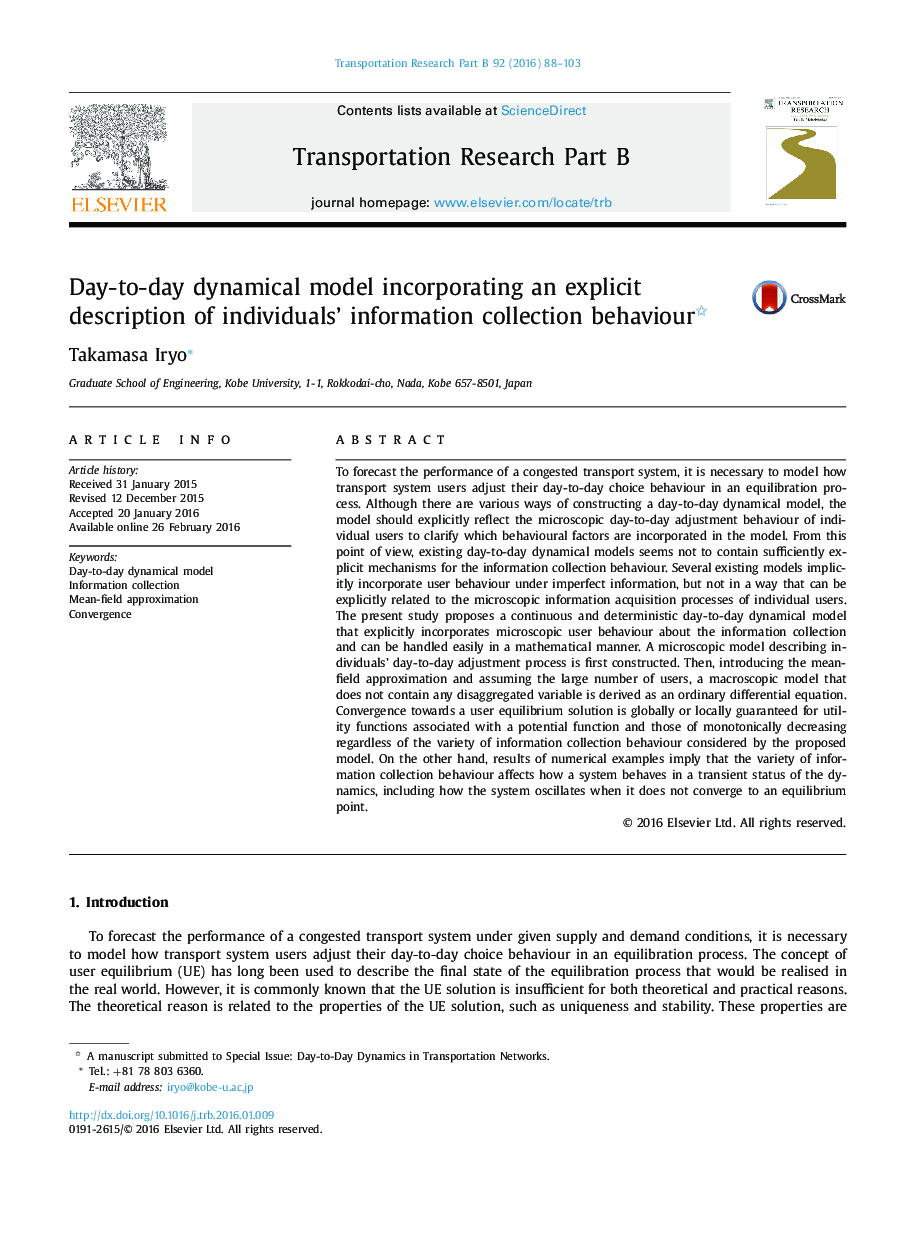| Article ID | Journal | Published Year | Pages | File Type |
|---|---|---|---|---|
| 5127215 | Transportation Research Part B: Methodological | 2016 | 16 Pages |
â¢A day-to-day dynamical model considering information collection behaviour is proposed.â¢The model explicitly incorporates a mechanism how individuals collect information.â¢The model is both mathematically-handleable and consistent with behavioural assumptions.â¢Convergence of the dynamics is guaranteed for a certain types of utility functions.
To forecast the performance of a congested transport system, it is necessary to model how transport system users adjust their day-to-day choice behaviour in an equilibration process. Although there are various ways of constructing a day-to-day dynamical model, the model should explicitly reflect the microscopic day-to-day adjustment behaviour of individual users to clarify which behavioural factors are incorporated in the model. From this point of view, existing day-to-day dynamical models seems not to contain sufficiently explicit mechanisms for the information collection behaviour. Several existing models implicitly incorporate user behaviour under imperfect information, but not in a way that can be explicitly related to the microscopic information acquisition processes of individual users. The present study proposes a continuous and deterministic day-to-day dynamical model that explicitly incorporates microscopic user behaviour about the information collection and can be handled easily in a mathematical manner. A microscopic model describing individuals' day-to-day adjustment process is first constructed. Then, introducing the mean-field approximation and assuming the large number of users, a macroscopic model that does not contain any disaggregated variable is derived as an ordinary differential equation. Convergence towards a user equilibrium solution is globally or locally guaranteed for utility functions associated with a potential function and those of monotonically decreasing regardless of the variety of information collection behaviour considered by the proposed model. On the other hand, results of numerical examples imply that the variety of information collection behaviour affects how a system behaves in a transient status of the dynamics, including how the system oscillates when it does not converge to an equilibrium point.
